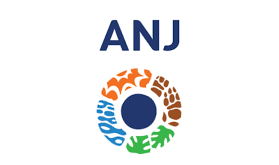By Dr. Shruti Mishra, Developmental and Behavioural Paediatrician, Ankura Hospital for Women and Children
Autism Spectrum Disorder (ASD) is defined as a complex neurodevelopmental condition marked by challenges in social communication, restricted interests, and repetitive behaviors. As a spectrum disorder, its manifestations vary significantly in severity and form. While some individuals may require continuous support, others may function independently but still face significant social and behavioral hurdles. The causes of ASD remain multifactorial, with both genetic predisposition and environmental factors believed to contribute.
In India, a notable rise in autism diagnoses has been observed over recent years. As reported by the INCLEN Study, the estimated prevalence stands at 1.12 per 100 children. This increase has largely been attributed to improved public awareness, changes in diagnostic guidelines, and a reduction in the stigma traditionally associated with neurodevelopmental conditions. While this trend reflects a positive shift in societal attitudes and healthcare accessibility, it has simultaneously exposed critical gaps in available resources and specialized services.
In the past, autism was frequently overlooked or misdiagnosed, particularly in rural and underserved regions. Limited knowledge among healthcare professionals, coupled with social misconceptions, often delayed or prevented timely identification. However, increased awareness among parents, educators, and clinicians has led to earlier referrals and more accurate diagnoses. Though risk factors such as advanced paternal age and the prevalence of nuclear family setups have been proposed, strong scientific evidence to establish causality remains inconclusive.
A pivotal factor contributing to this change has been the gradual reduction in social stigma. In earlier times, families often avoided seeking professional evaluation due to fear of judgment or marginalization. Today, a more informed and accepting environment has been fostered, encouraging caregivers to pursue early intervention and professional assistance without fear or hesitation.
Early intervention has been internationally recognized as a crucial determinant of developmental outcomes in children with ASD. Research has consistently demonstrated that intervention initiated before the age of three leads to measurable improvements in communication, social skills, cognition, and behavior regulation. The neuroplasticity of the developing brain during early childhood allows therapeutic strategies to be more effectively absorbed and translated into functional skills.
Therapies such as applied behavior analysis, speech and language therapy, occupational therapy, and parent-mediated interventions have been found to be most effective when introduced early. Active participation of caregivers in therapy sessions and home-based reinforcement of techniques have shown to significantly enhance progress and ensure continuity in developmental support.
Despite these advancements, the rising diagnosis rates have placed considerable strain on the healthcare system. A significant shortage of trained developmental professionals, limited access to multidisciplinary therapy services, and the lack of inclusive education infrastructure have emerged as pressing concerns. In response to these challenges, Ankura Hospitals has established a comprehensive Child Development Center offering screening, diagnosis, and structured intervention programs for children with ASD and other developmental delays. A multidisciplinary team comprising developmental pediatricians, psychologists, speech-language pathologists, occupational therapists, and special educators collaboratively manages care. An open-door policy has been adopted, encouraging parents to participate in therapy sessions, and regular parent training programs are conducted to build long-term support mechanisms at home.
The increase in autism diagnoses in India marks a turning point in the national discourse around child development. While it indicates a growing understanding and acknowledgment of neurodevelopmental conditions, it also signals an urgent call for systemic improvements in early intervention access, professional training, policy formulation, and inclusive support frameworks. With sustained awareness efforts, investment in healthcare infrastructure, and collaborative community involvement, children with ASD can be empowered to reach their fullest potential and lead enriched, independent lives.
 Newspatrolling.com News cum Content Syndication Portal Online
Newspatrolling.com News cum Content Syndication Portal Online







